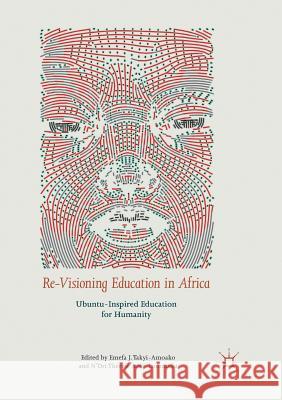Re-Visioning Education in Africa: Ubuntu-Inspired Education for Humanity » książka
topmenu
Re-Visioning Education in Africa: Ubuntu-Inspired Education for Humanity
ISBN-13: 9783319888811 / Angielski / Miękka / 2019 / 257 str.
Kategorie:
Kategorie BISAC:
Wydawca:
Palgrave MacMillan
Język:
Angielski
ISBN-13:
9783319888811
Rok wydania:
2019
Wydanie:
Softcover Repri
Ilość stron:
257
Waga:
0.33 kg
Wymiary:
21.01 x 14.81 x 1.47
Oprawa:
Miękka
Wolumenów:
01
Dodatkowe informacje:
Wydanie ilustrowane











